|
Circe by Madeline Miller is a re-imagining revolving around the life of Circe, who played minor roles in Greek mythology. This book heavily involves many other Greek myths, and incorporates them in a way that flows naturally. The inclusion of the creation of the Minotaur was an unexpected and somewhat disturbing development, but it added validity to Miller’s tale, as it showed that each character is more than one dimensional -- having their own motivations, however misguided some may be. I appreciated that Circe’s character was expanded upon throughout this story, and that she did have character development. Whereas other gods or immortals may have a set mindset that is unwavering, especially regarding human fragility, Circe grew to understand humanity, and to see past the pettiness of the gods. While there is a large theme of mortality throughout this novel, I won’t be contemplating such topics, as I’ve dove into that in previous posts.
Despite Circe being the main character, Miller did well when it came to developing side characters, some of which took the spotlight, even if it was very briefly lived. For example, the inclusion of Daedalus and his son, Icarus, not only helped to humanize Circe, but was in itself a tragic tale that could be related to. Aside from human characters, the character I found myself most drawn to was Trygon, who ended up being my favorite character. Unlike other gods portrayed in this story, he isn’t humanoid, but rather an ancient being dwelling beneath the depths. Trygon also doesn’t require Circe to go through with proving herself in order to obtain his tail as a weapon, and spares her from having to endure eternal pain. This ancient sea entity is somewhat reminiscent of Lovecraftian horror, while also being honorable; I’ve always enjoyed analyzing horror media. Another character that left me with a distinct impression was that of Hermes. Throughout this novel, Hermes acts as a trickster god, which leads to the correlation between Loki and Hermes. As Loki is a more recent trickster that shows up across media, especially in Marvel, it was the first connection I made. Regarding Circe, I thought it was commendable that she finally stood up to Helios, ending her imprisonment and being free to roam the Earth by the end of the novel. However, the ambiguity of the ending, while appreciative, was also frustrating, as her wish to forego immortality was left unanswered. It would have been nice to at least get a glimpse towards her future being as bright as she imagined it to be, but the novel was cut off right before that point.
0 Comments
Written by Zachary Mason, The Lost Books of the Odyssey contains many different alternate scenarios of the classic odyssey myths. There were portions of the book so short that I felt they either needed to be cut or be expanded upon, as a half page doesn’t constitute a chapter. There were also a handful of concepts that I felt missed the mark, or were strangely crafted. However, I did appreciate that not every chapter was written revolving around the exact same characters. For instance, one chapter revolves around the cyclops that Odysseus blinds, and retells the myth from another perspective. This made characters other than Odysseus more sympathetic, and revealed how nuanced many situations are. The characters also appeared more fleshed out, as different chapters explored different facets of each character’s personalities.
In the book House of Names, Colm Toibin tells a modern day adaptation of The Oresteia. Overall, this version of the original Greek mythology captured my attention the most, as it details many aspects in a more character-focused narrative than other works. I was able to sympathize with Clytemnestra through this novel-- despite not agreeing with her actions-- as opposed to her being reduced to a backstabbing target that’s being set only for Orestes to seek revenge against. Orestes was also very humanized, as he’s being manipulated to perform many actions others don’t wish to do firsthand.
This work also allowed me to realize how morally gray many concepts within the myth are. Cyclical killing, or revenge killing, is a morally dubious yet intriguing notion, as it never seems to end. Hatred fosters more hatred, with each party believing themself to be in the right; it seems to be easier to hate than forgive. Of course, murder isn’t a forgivable crime, but then, how does one go about stopping such a vicious cycle? A compromise would be a suggestible idea for any other conflict, or some form of a treaty. However, that doesn’t rid people of their negative emotions towards others, and might cause them to eventually lash out again. In the least conflicting scenario, an outside force might happen to intervene, thus being a neutral third party to call judgement upon the others. Yet, this third party will inevitably hold their own biases. This concept may not have one definite solution, but it is worth pondering. Another concept that weighed on me after this reading was that of manipulation. Orestes is manipulated by Electra into killing Clytemnestra, as she still seeks power, and would be unfit for a high-ranking position should she commit such a crime. While not to the same degree, many other people have been manipulated within their lifetime. It is a condemnable action, yet many seek to do so for their own benefit, not caring what becomes of the other person, or how it might affect them. This concept ties into the roots of corruption, which is prevalent worldwide. Although that notion in itself is rather large and overarching, it’s important to be skeptical of others' motivations. Cassandra: A Novel and Four Essays is a book written by Christa Wolf as a re-imagining of the classic Greek myth, Cassandra. I appreciate that while it was meant to simulate ancient literature in its nature, it was still written modernly so as not to require an extra step of translation. I found it tragic that while Cassandra had foretold the fall of the city, she went unheeded. As is human nature, her society held too much hubris, believing that their city would never fall. Curiously, people tend not to listen to warnings, rather preferring to charge ahead with their own biases. If they had heeded Cassandra's warnings, and put some sort of precautions in place, events might have unfolded differently.
Quite frankly, I didn’t much enjoy The Oresteia, written by Aeschylus. This may be on account of many lines’ meanings being covertly worded and intertwined with ancient metaphors that require a level of translation in today’s world. It may otherwise have been due to the premise of this particular writing, as it didn’t strike me as other works have. However, while I hold this opinion of the overall piece, I did find part three of The Oresteia, the Eumenides, intriguing. These beings had been summoned fourth to deliver justice upon Orestes for the murder of his mother. Yet, their sense of justice stems from bygone eras, from cycles of revenge exacted due to other previous violent actions. Eventually, this justice is revealed to no longer hold a place in the Athenian judicial system, where a group decides a verdict rather than an individual. Orestes faces little in the way of repercussions due to his actions, essentially walking free after taking a life, as decided by the majority.
This made me ponder, what is true justice? Even though this text is from many decades past, similar events still occur in the present. A person convicted of a minor infraction may end up jailed for a long time, if not the rest of their life, while one with a track record of violent behavior still roams free. Undoubtedly, there is an aspect of wealth influencing such decisions, yet this diverts the reason for having a judicial system. Even if one is to be rightfully held to the consequences of their actions, who is to decide what justice they should face for their infringement? The will of the majority is ever shifting, with punishments being constantly deemed as too strict or too lenient. Even the Furies came to the realization that what they had been exacting wasn’t precise justice. Simply put, in today’s world, much like that of the time of The Oresteia, an answer to the question of justice is yet to be fully realized. |
Archives
November 2021
Categories |
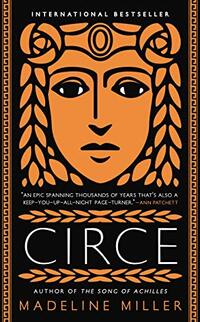
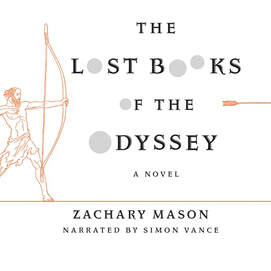
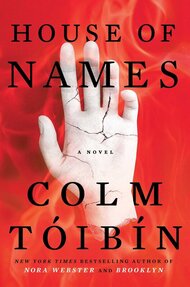
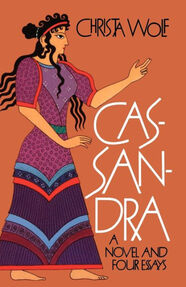
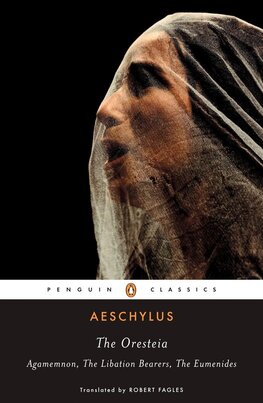
 RSS Feed
RSS Feed
